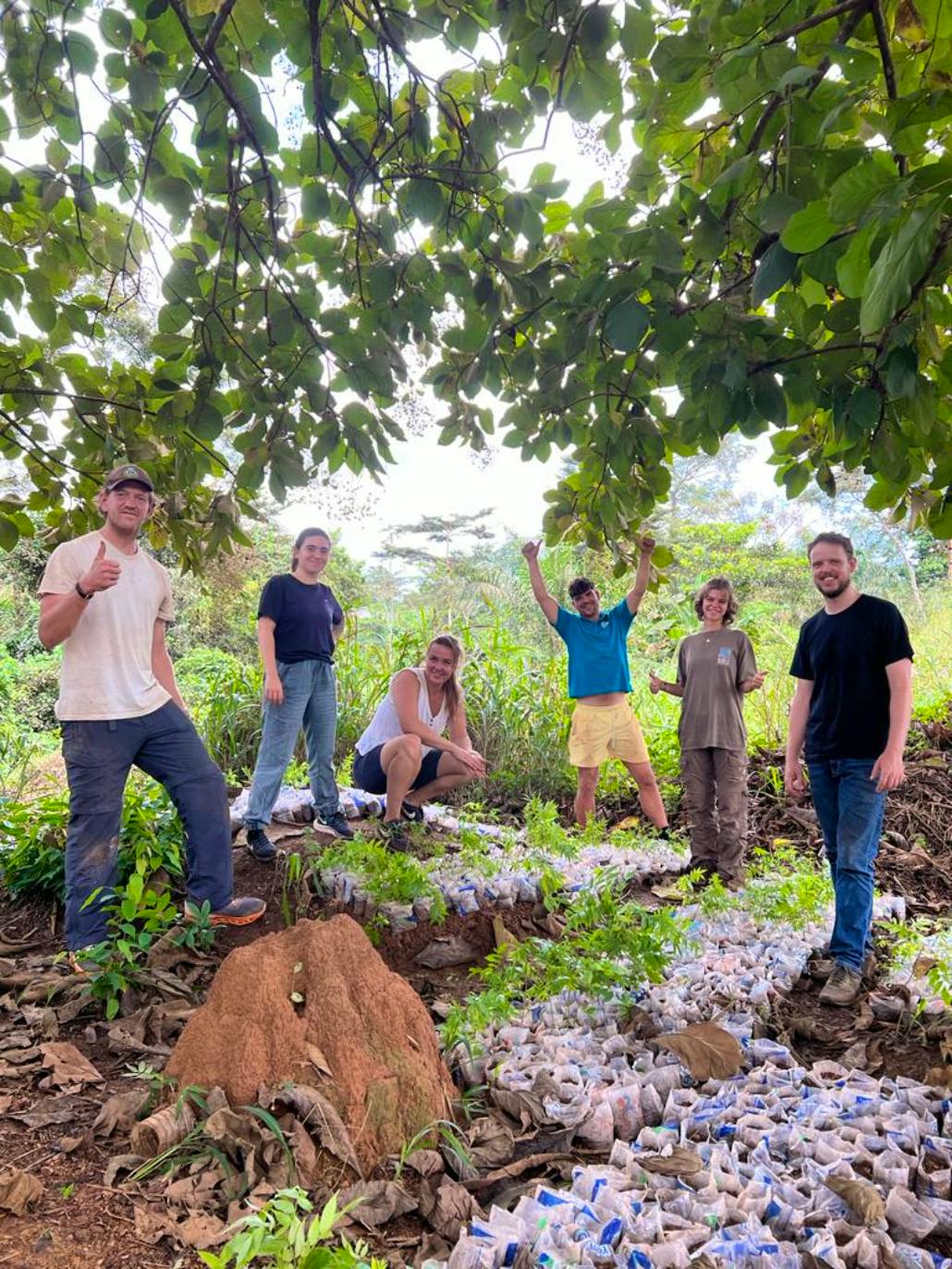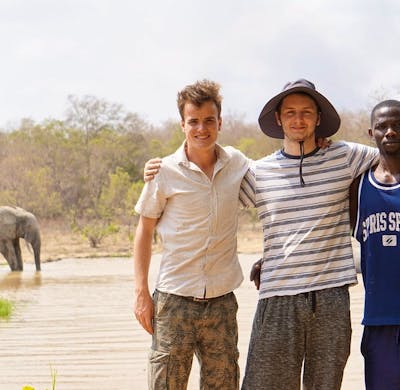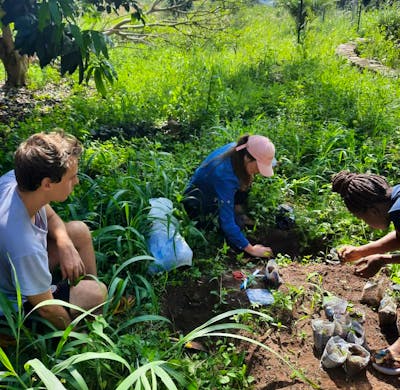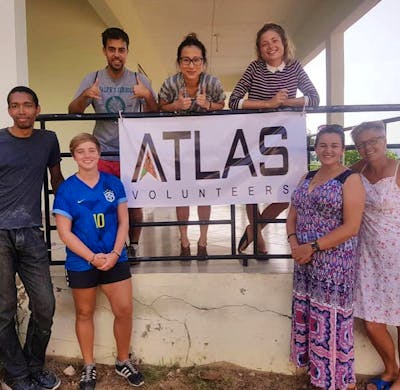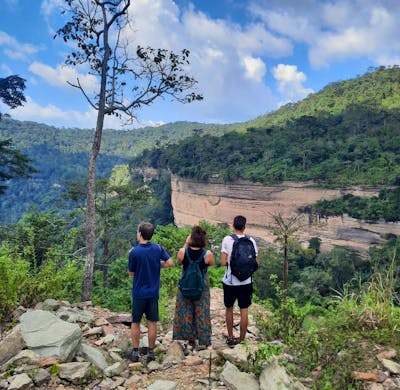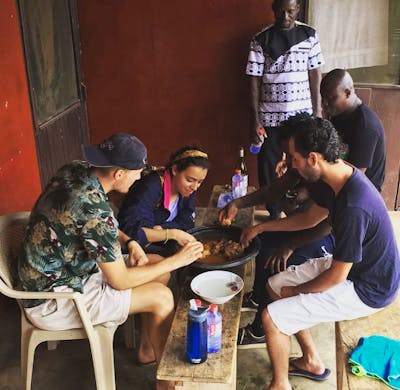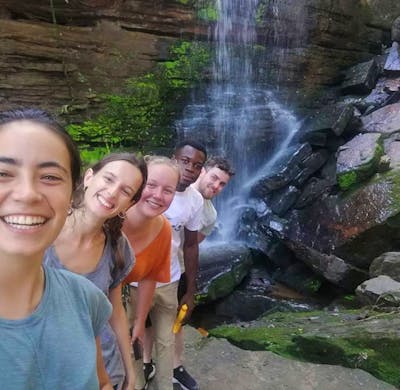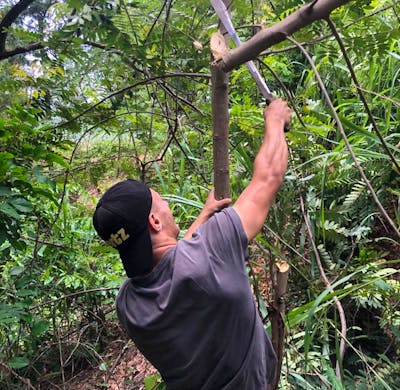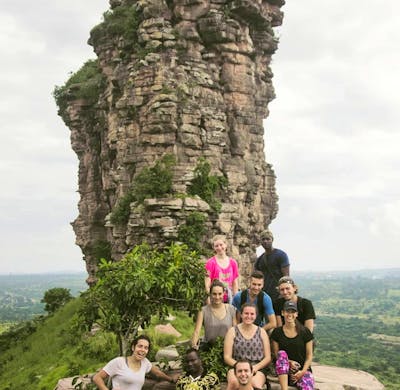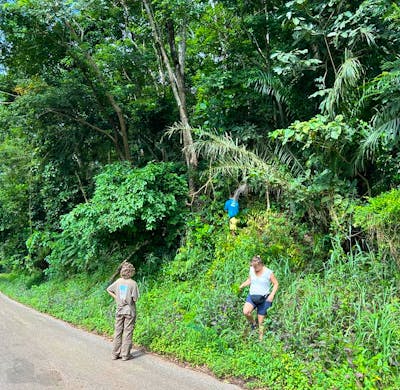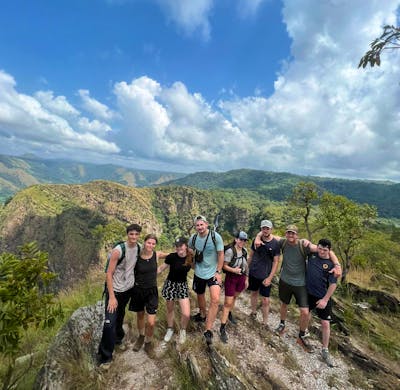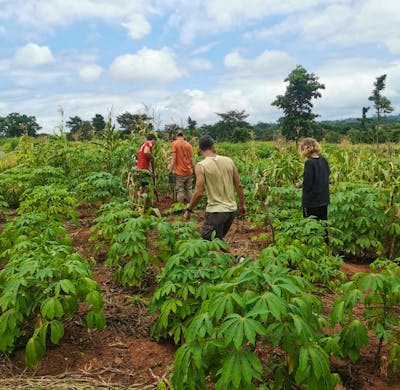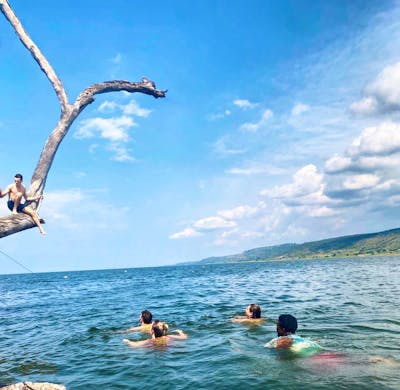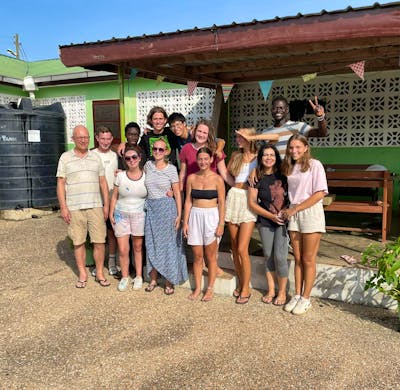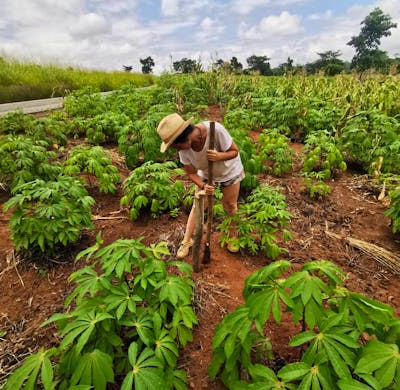2024 at Reforestation in Kwahu Mountains
Reforestation in Kwahu Mountains
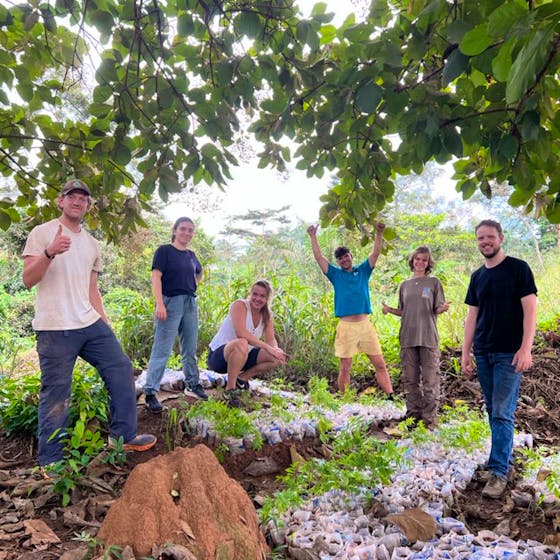
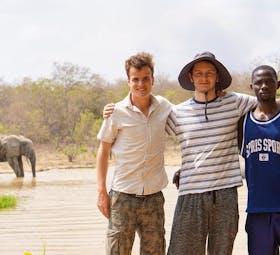
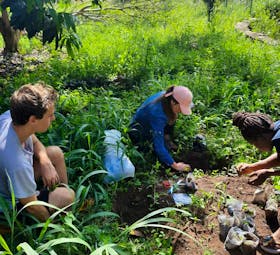
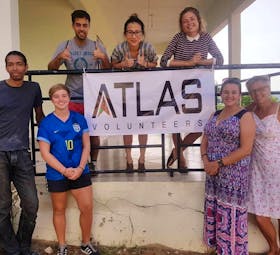
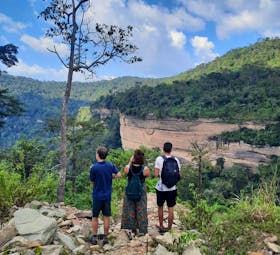
Destaques
- Help the climate by growing seedlings and planting trees in the communities affected by deforestation and climate change.
- Work with the local community to educate and provide a long term chain of reforestation.
- Gain a new family, living in shared volunteer housing gives you the perfect chance to make life long friends across the globe.
- Make unforgettabe memories travelling with your fellow volunteers at weekends to places such as Mole Safari Park, Cape Coast Castle & Boti Waterfall.
- Explore the surrounding rainforests and mountains in your free time along with the rural Ghanaian way of life and it's laid back, friendly atmosphere.
- Help the climate by growing seedlings and planting trees in the communities affected by deforestation and climate change.
- Work with the local community to educate and provide a long term chain of reforestation.
- Gain a new family, living in shared volunteer housing gives you the perfect chance to make life long friends across the globe.
Especialmente adequado para
Sobre o programa
Combat climate change and the affects of deforestation by growing seedlings, planting trees and working alongside the local communities on educational outreaches.
About The Placement
Join the reforestation team and help us to grow seedlings and planting trees to create patches and strips of diverse native vegetation to boost and enhance the local wildlife and ecosystem by providing a wide range of species to produce oases for biodiversity.
Why This Placement?
Dia típico
- 07:30am - 08:00am / Volunteer transport leaves the volunteer house to project sites
- 08:00am - 10:00am / Arrive at project site destination and start placement work. Eg, watering and planting seedlings.
- 10:00am - 11:00am / Break
- 11:00am - 13:00pm / Resuming of placement site work. Eg, setting up new ...
Actividades em tempo livre
Mid Week Free
Time
After school and evenings offer these
local opportunities around the local area:
- Hiking / Trekking
- Swimming
- Sightseeing (Waterfalls and breathtaking scenery)
- After school & Homework Clubs
- Sports facilities
- Live Music
- Plenty of Nightlife
- Restaurants & Hotels
providing western cuisine
Weekend
Requisitos
Serviços incluídos
O que NÃO está incluído?
Detalhes à chegada
This placement is available throughout the year. You are welcome to
arrive with us any day of the week or flight arrival time and we will
adjust your airport collection accordingly.
How Do I Get From The Airport to Volunteer House On Arrival?
We
can arrange for one of our partnered drivers to collect you from
the airport and bring you directly to the volunteer house although fuel,
airport parking and toll fees must be covered by yourself - payable in
Ghana cedis or US dollars on the day (You can use local ATM machines on
the way to withdraw Ghana cedi currency.)
Cost: As of January 2024 this is around 700 cedis.
They will be holding a sign with your name on so they should be easy to spot!
Preços do programa
Conheça seu anfitrião
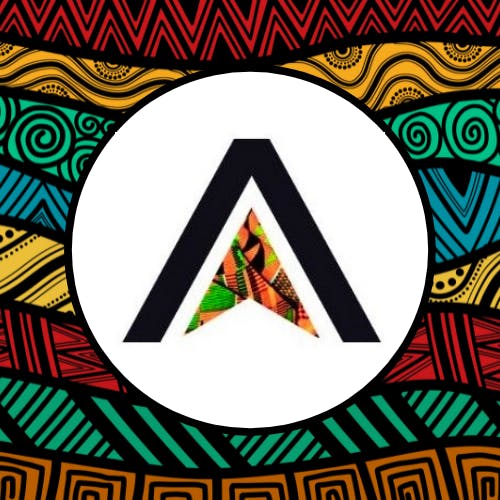
Atlas Volunteers
Non-profit - fundada em 2017
Verificado por Volunteer World
Hospedado por

Sam
Sobre o projecto
241 revisões ·  4.8
4.8
Localização

Pode também estar interessado em
-
Reflorestamento
Casais
Grupo
Viagens Solidárias
Baixo Custo
Projectos no estrangeiro
Família
Maiores de 50
